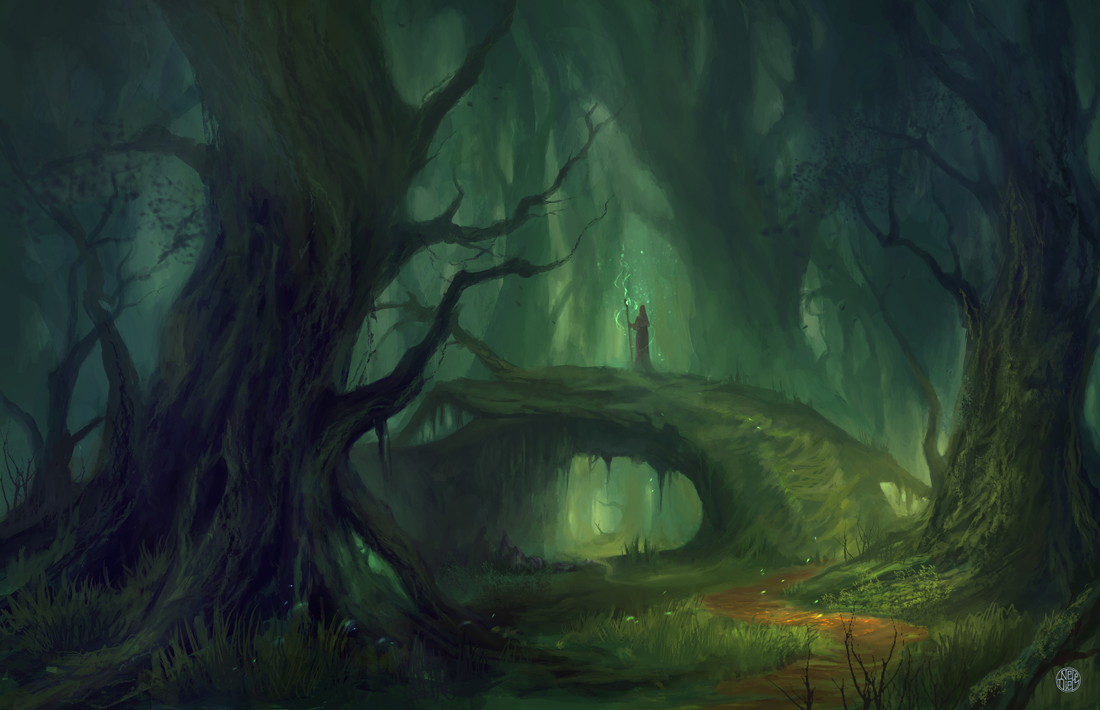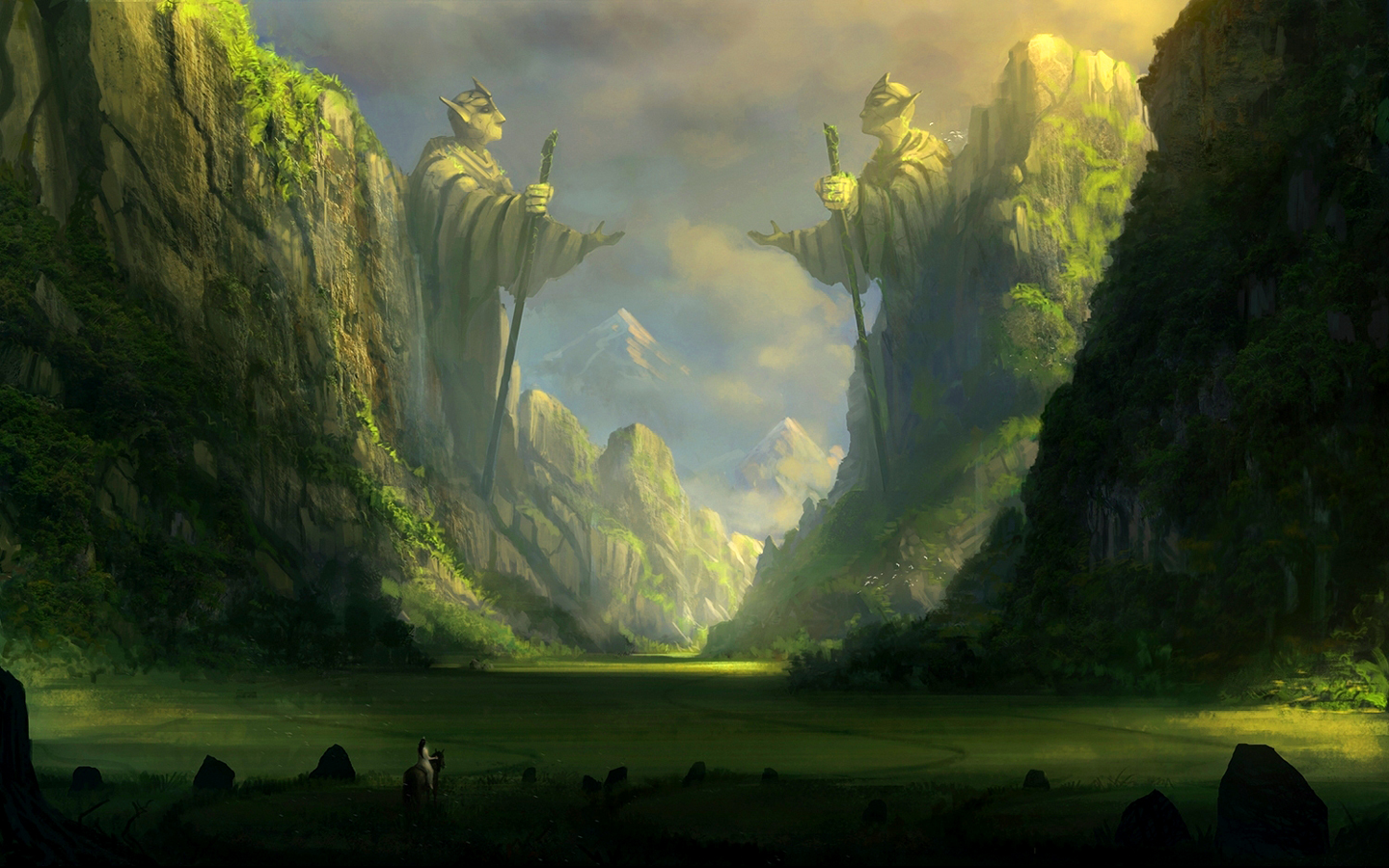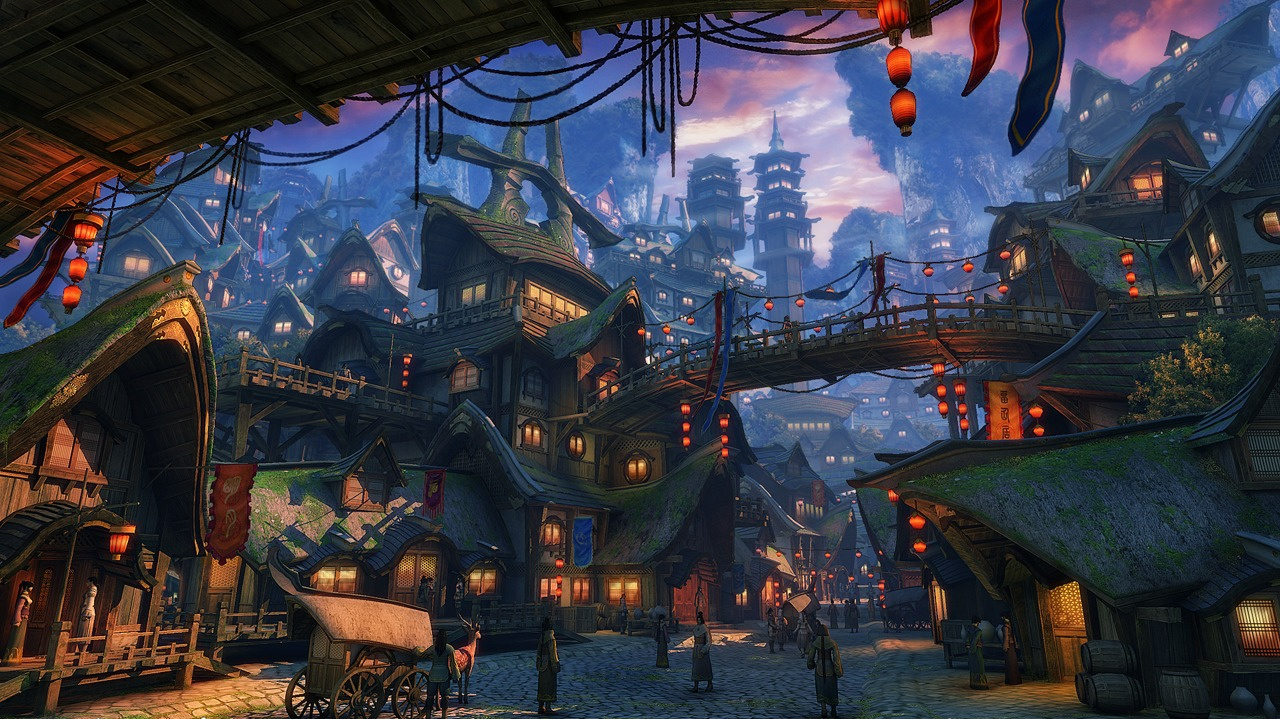Jascana
Jascana is a lush and serene country, defined by vast forests, winding rivers, and the sprawling Qila Jungle, one of Nineveh’s great natural wonders. Mardros, goddess of Nature, is deeply revered here, and her blessing is said to keep the land safe from most monstrous threats. The capital, Lourburg, is home to the Jascanian Legion of Druids, the largest druidic order in Nineveh, which protects the land and its people while preserving balance with nature. Jascana feels tranquil and inviting to outsiders, though its untouched jungles and ruins hold mysteries and artifacts from civilizations long forgotten.
Structure
Jascana’s ruler is elected every ten years, and King Isembart I, a Leonin, is the first non-human to hold the crown. Regional lords are either chosen by their cities or appointed by the monarch, but their power is balanced by the Council of Druids, who ensure the kingdom’s harmony with nature and fairness in governance.
Culture
Life here is calm and deeply spiritual, with festivals tied to the changing seasons and Mardros’ blessings. Villages rarely fight, and Jascanian hospitality extends to most travelers, though nearly all encourage worship of Mardros, goddess of Natures alongside any other gods.
Public Agenda
Jascana prioritizes nature’s preservation, peaceful trade, and spreading the teachings of Mardros, goddess of Nature. While politically influential in Nineveh, it avoids unnecessary wars and focuses on harmony and balance.
Assets
- The Jascanian Legion of Druids, a respected magical and spiritual force
- Fertile farmland and exotic resources from the Qila Jungle
- Ancient ruins and artifacts that attract scholars and adventurers
- Safe trade routes through the Haadon mountain range
History
Jascana was once a land dominated entirely by the Qila Jungle, with scattered fey and animalfolk tribes living in harmony under the blessing of Mardros, goddess of Nature. Over centuries, as more permanent settlements emerged, the jungle receded naturally, leaving fertile plains and habitable forests. About 1,422 years ago, these tribes and towns united into a single kingdom to protect their sacred land from foreign invaders, electing their first king and forming the Council of Druids to ensure no ruler strayed from nature’s path.
While Jascana has rarely engaged in full-scale wars, it has seen many border skirmishes with neighboring nations seeking the Qila Jungle’s resources. These conflicts, combined with the discovery of countless ancient ruins and artifacts within the jungle, shaped Jascana into both a spiritual and economic power. Despite its mystical allure, the kingdom’s greatest strength has always been its unity, as its people remain fiercely loyal to their land, their druids, and Mardros.
Demography and Population
Jascana’s population is approximately 247,000, with animalfolk and humans forming the majority. Centaurs, Pandafolk, Mönke, and fey creatures live freely across the kingdom, with scattered villages often inhabited by unique magical species tied to the jungle and forests.
Territories
Jascana spans lush forests, the sprawling Qila Jungle, fertile plains, and the easily navigable Haadon Mountain Range. Snow is rare even on the peaks, and trade routes through the mountains remain open year-round.
Military
The Whiteroses, Jascana’s small but highly trained military force, operates under the crown and the Council of Druids. They defend settlements from external threats and assist the Legion of Druids in preserving sacred sites.
Technological Level
Relatively low compared to other nations, Jascana relies on magical and natural methods to compensate for its lack of industrial advancement. Druidic magic and the study of nature take precedence over machines and complex tools.
Foreign Relations
Jascana maintains strong relations with Scania and Selatres, trading in rare resources and magic. It avoids conflict with most nations, using diplomacy as its first line of defense, but has historically clashed with those seeking to exploit the Qila Jungle.
Laws
- Worship of Mardros, goddess of Nature is highly encouraged, though not mandatory.
- Destruction of sacred groves, fey settlements, or rare species is a crime punishable by exile.
- Magic may be freely practiced, but curses and hexes on living beings are outlawed.
- The Council of Druids may overrule the monarch if they act against nature’s balance.
Agriculture & Industry
Jascana thrives on exotic fruits, herbs, and rare plants harvested from the Qila Jungle. Small-scale mining in the Haadon mountain range supplies local artisans, though industry remains minimal to preserve the land.
Trade & Transport
Trade routes cut through the Haadon mountain range and forests, connecting Jascana with Scania and Selatres. Lourburg serves as the central trade hub, and caravans are often escorted by druids or Whiteroses to deter poachers and raiders.
Education
Druidic and nature-based studies dominate, with schools teaching herbalism, animal bonding, and weather manipulation alongside basic education. Magical academies for non-druids are rare but present in Lourburg.
Infrastructure
Most Jascanian settlements favor natural materials, using wood, stone, and living plants to construct homes and communal spaces. The capital, Lourburg, maintains a rustic layout centered around farms and the royal castle, which is the only imposing structure in the kingdom.

“In Harmony, We Thrive.”
Founding Date
1,422 years ago (officially recognized as a kingdom)
Type
Geopolitical, Country
Capital
Alternative Names
The Sunny Country, The Emerald Kingdom, The Grove Nation
Demonym
Jascanian
Leader
Government System
Democracy, Presidential
Power Structure
Autonomous area
Economic System
Barter system
Major Exports
- Exotic fruits and herbs
- Ancient artifacts and relics
- Magical ingredients and rare plants
Major Imports
- Refined metals and tools
- Advanced technologies from neighboring nations
- Luxury goods such as wine and crafted jewelry
Deities
Neighboring Nations








Comments